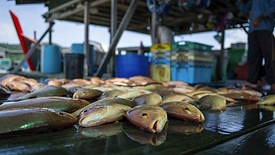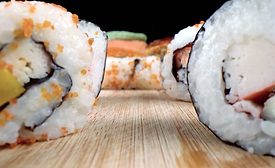Seafood
Reimagining Sushi Safety: A Collaborative Approach to Food Standards
The National Fisheries Institute's newly established Sushi Council aims to enhance food safety standards in the sushi industry through collaboration and implementation of rigorous guidelines
August 5, 2024
Never miss the latest news and trends driving the food safety industry
eNewsletter | Website | eMagazine
JOIN TODAY!Copyright ©2024. All Rights Reserved BNP Media.
Design, CMS, Hosting & Web Development :: ePublishing









